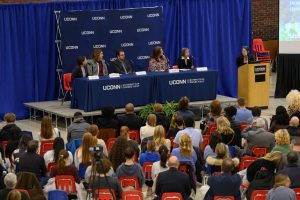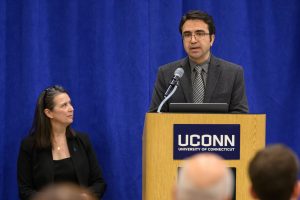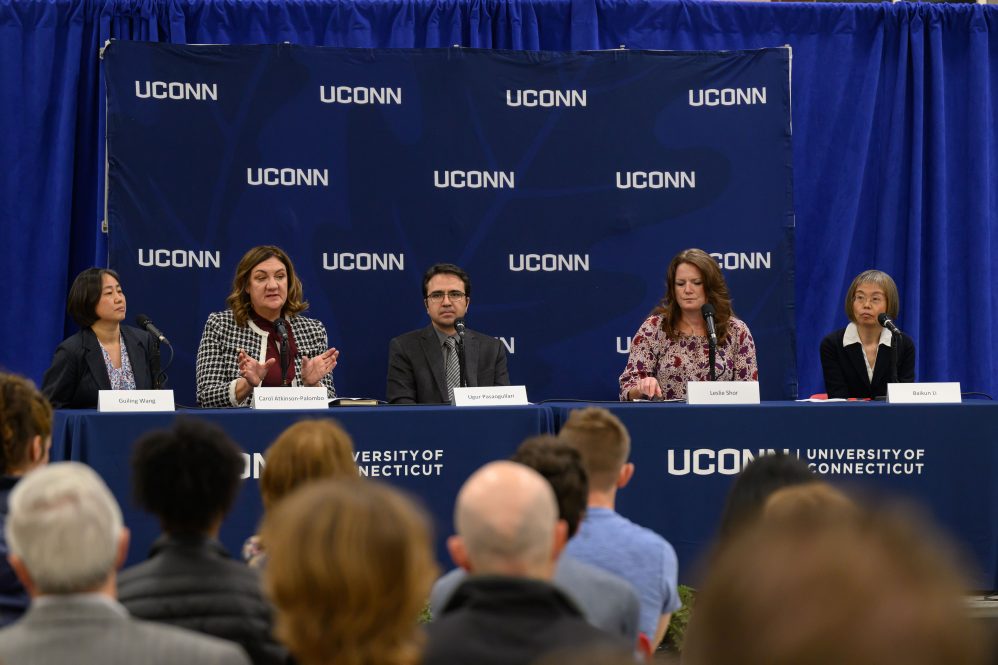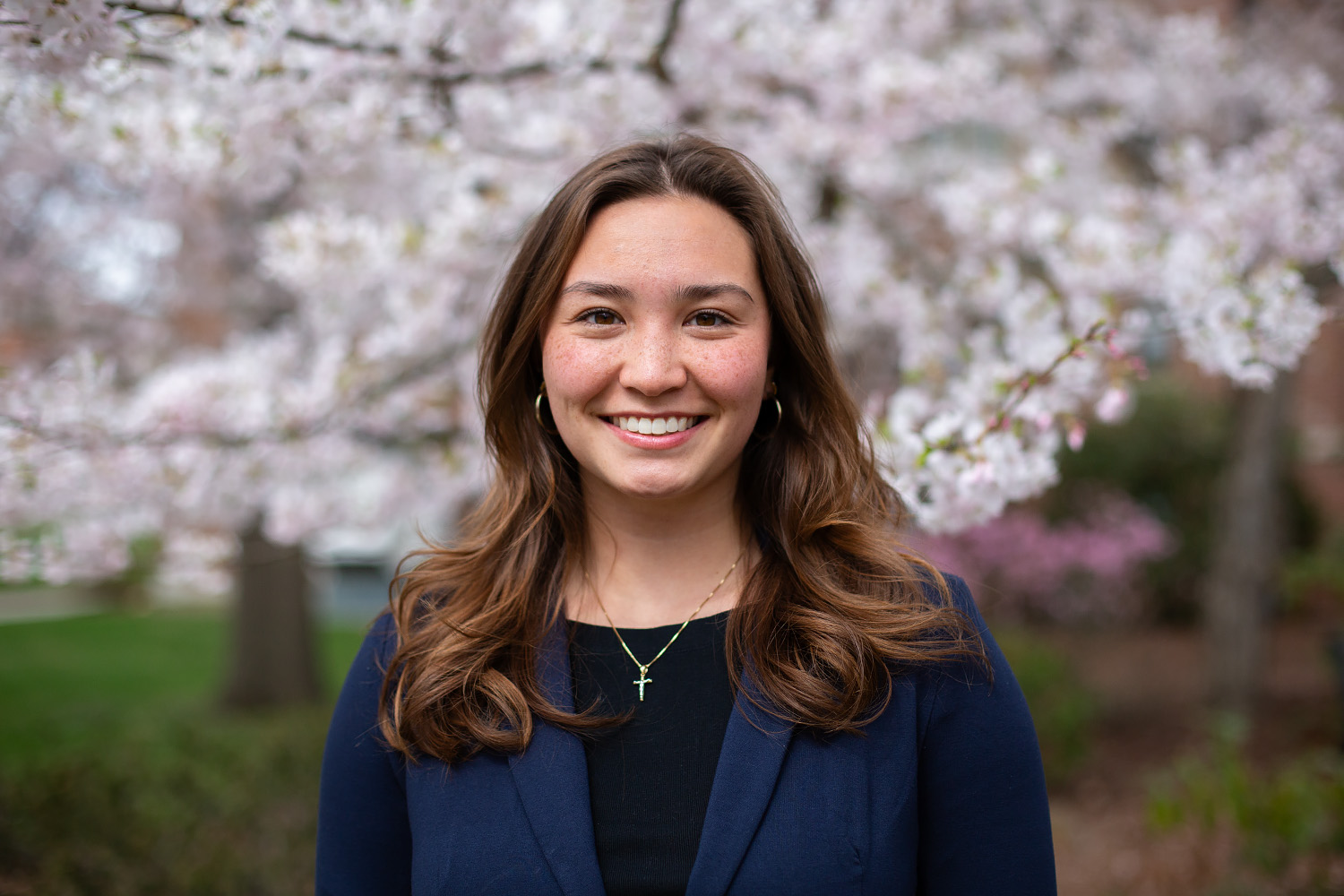A panel of University of Connecticut climate experts discussed how Connecticut could become the Silicon Valley of sustainable energy during a roundtable in Greenwich on Nov. 16.
“Climate change is a global issue, but politics are local,” and there must be action at all levels of society to avoid major problems for every human being, University President Radenka Maric said. Maric’s research has focused on technological solutions to reduce carbon dioxide emissions, the primary driver of climate change. In particular, Maric has worked on fuel cells, exceptionally efficient devices that use the chemical energy of hydrogen or another fuel to produce electricity. Many fuel cells can also run in reverse, storing electricity as chemical energy.
UConn will install several fuel cells around campus this year, building on the success of the fuel cell power plant originally installed at the Depot Campus in April 2012. That fuel cell has supplied the Depot with heating,

cooling, and electricity for almost a decade.
“Ten years ago, we installed a fuel cell in front of our building. At the time, people were skeptical: ‘Is this just going to be a lawn ornament?’ Now the university is installing 10 more, because everyone sees that they work,” said Ugur Pasaogullari, director of UConn’s Center for Clean Energy Engineering.
Earlier this year, a new 460kW fuel cell was installed to replace the original 400kW cell at the Depot Campus.
Besides providing heat, air conditioning and electricity around campus, the new fuel cells will also help the state learn best practices for distributing the technology in a local grid, Pasaogullari said, responding to a question from former Connecticut Independent governor candidate Robert Hotaling ‘01 (ENG). The distributed fuel cells are just one of many initiatives the University is taking in concert with the Eversource Energy Center to help plan the state’s future low-carbon electrical grid.
Expanding and improving the grid has gained urgency now that Connecticut is developing offshore wind projects. Integrating large, intermittent sources of generation can strain other parts of the grid which have to balance that power. It can also strain local communities, as Carol Atkinson-Palombo, professor in the Department of Geography, pointed out.
“The interconnection to the grid, the construction, the cables…all these things can disrupt communities,” Atkinson-Palombo said. Figuring out how to integrate these big new renewable developments with the grid isn’t just the job of engineers. People in the affected communities need to like the project and want it, or it won’t happen.
“There’s lots of opportunities in social sciences and the humanities,” in addition to engineering, Atkinson-Palombo said. “The implementation of technology is just as important as the development of it.”
People skilled in the arts—in graphic and industrial design, in presentation and public speaking and persuasion—will all have a role in helping Connecticut adapt to climate change and transition its economy to one based on clean energy, added UConn Civil and Environmental Engineer Baikun Li.

Li and fellow engineers Guiling Wang and Leslie Shor discussed challenges around drought, agriculture and wise water use in Connecticut, as well as UConn’s new climate science minor and opportunities for all students, high school and undergraduate, to participate in research and gain job experience in the field even before they gain their bachelors degree.
“Many of the jobs are born here in Connecticut,” Pasaogullari said. “We have the knowledge, the companies, the supply chain—we could be the next Silicon Valley of energy.”



